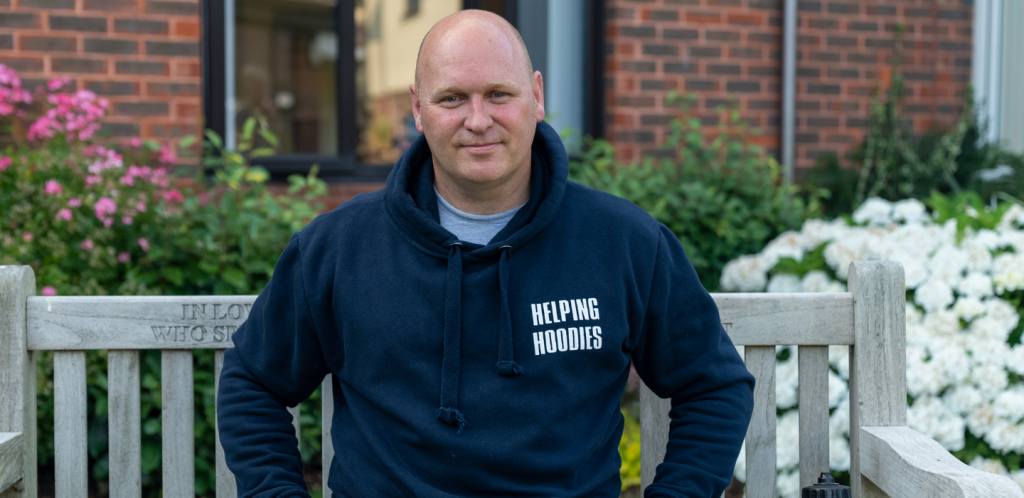Firefighters spend their lives taking care of other people and putting their wellbeing before their own – something Phil Maynard, 49, a station manager with West Sussex Fire and Rescue Service, says is just part of who they are and what they do.
So when it came time for him to address his own health concerns, he was blown away by the support on offer to him and his colleagues through the charity.
Phil had always enjoyed an active lifestyle, having worked as a fitness instructor before his time in the fire service more than 29 years ago, as well as swimming nationally and being a competitive martial artist.
However, his health took a major knock in 2013 when he was diagnosed with Multiple Endocrine Neoplasia Type 1 – a rare, hereditary cancer-causing condition. Tragically, he found out about it just a month before his brother passed away from the same condition.
“I was diagnosed a month before he died and then went on to have all the tests and surgeries related to that,” says Phil. “I had surgery on my neck and had all my parathyroid glands removed, half of my thyroid, a part of my thymus removed, I’ve had a lump removed from my chest, and my pancreas is covered in tumours. I’ve also got tumours on my adrenal glands as well.”
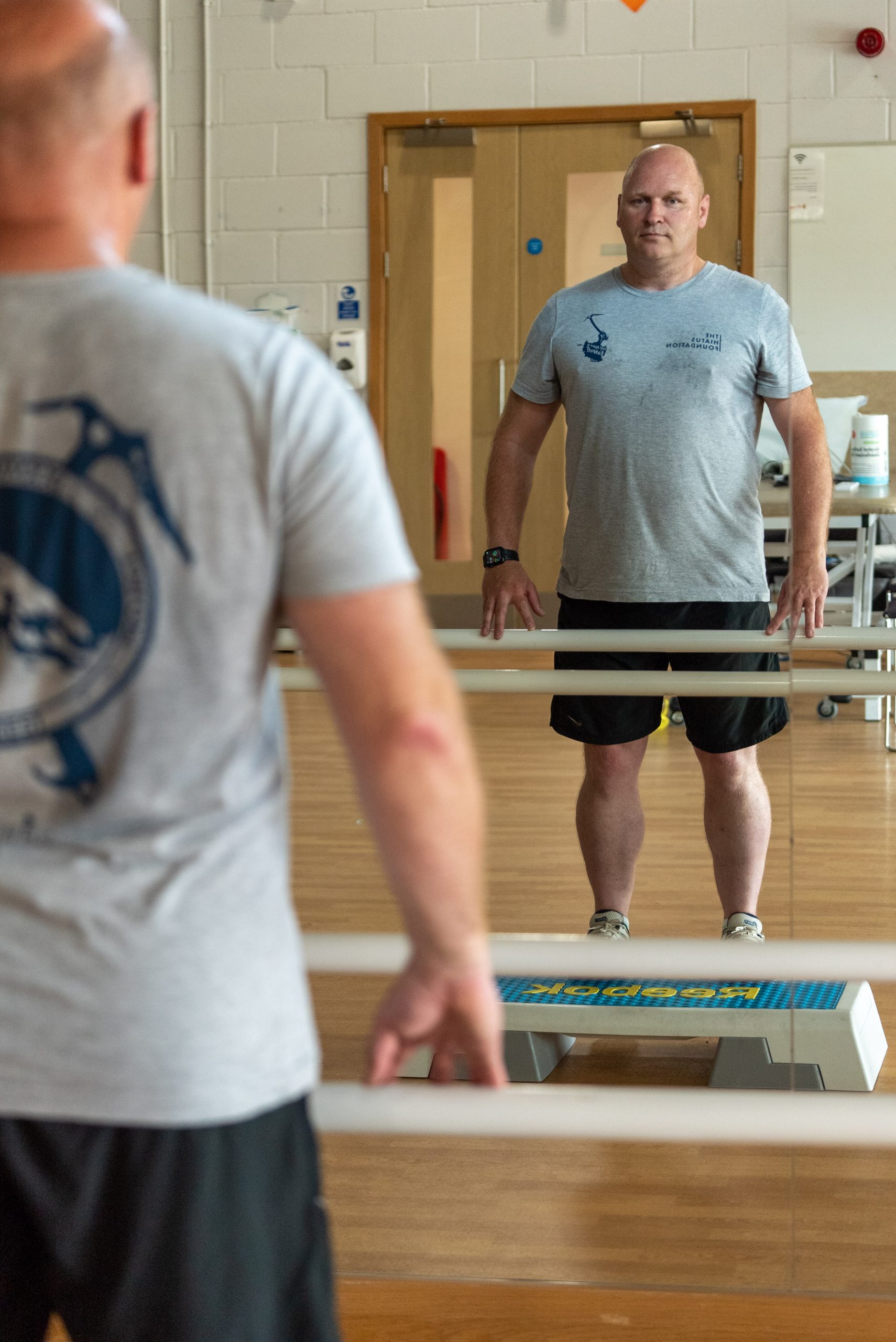
Around the same time, Phil made his first contact with the charity, having heard about the mental health support on offer to beneficiaries like himself. He visited Marine Court, our centre in West Sussex, for bereavement support – something he says was “enormously beneficial.”
“You can’t underestimate the value that comes with taking yourself out of your normal daily situation and putting yourself in a situation where you are the one being cared for,” he adds. “I think most of our lives, certainly in this career, we spend looking after other people and it’s very rare we have that opportunity to be looked after ourselves, and it provided that for me.”
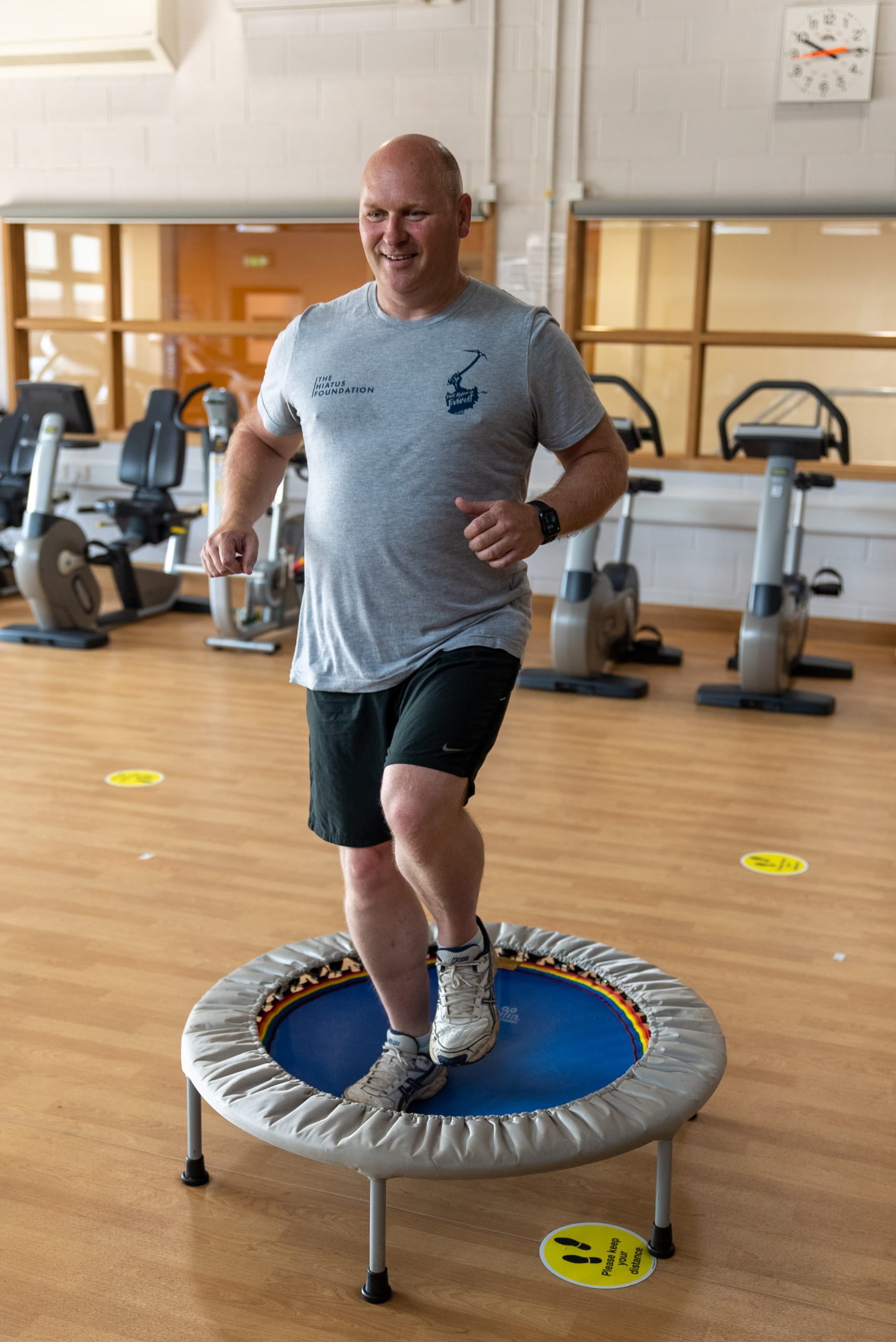
In the years that followed, Phil kept the charity at the forefront of his mind, telling colleagues about the help he’d received. But while he says it had been transformational for his mental wellbeing at the time, his physical health had begun to deteriorate.
“I was aware that I was having problems with my hip, getting up and getting moving was painful,” says Phil. “The first connection I made to my condition was when I went in to enquire about hip replacement surgery and the surgeon informed me that there was a bone growth that I’d had since I was about five years old that had caused deterioration in the hip.
“It was only then that I reflected back and realised that when I ran or swam I always had trouble with my hip, but I’d never paid much attention to it. The condition I’ve got affects my bone minerals and so it had essentially developed into arthritis, plus I had cysts on the joints. I eventually had the replacement surgery in September 2019.”
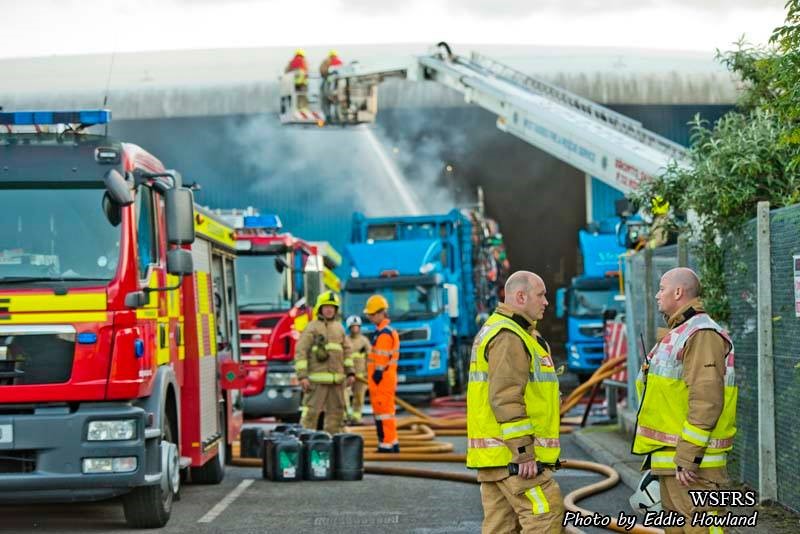
Phil was referred to a ‘Hip School’ through Guy’s Hospital in London, where he was receiving care, and was given a series of exercises to do before and after the surgery. Doing exercises like this, he says, is essential when it comes to joint surgery as they work to strengthen muscles around the joint to better aid recovery.
“Luckily I’ve got a really great other half who then made sure I did the exercises!” says Phil. “It doesn’t feel beneficial at the time, because the exercises are focusing on the small muscles and support and strengthening, so you don’t feel like it’s doing much, but when you’ve had the surgery it makes all the difference in the world.
“It was things like calf raises, lateral raises, sliding my leg in and out on the floor, very minor movements that don’t seem like much but they’re strengthening all the muscles round the hip.
“I went back for a check-up a month or so after my surgery and as I walked in, the person before me – who had had an operation the same day as me – was in a wheelchair because they hadn’t done the exercises. They’re absolutely key.”
Phil had reached out to the charity before the operation and was booked in for a week’s stay at Marine Court shortly afterwards, to help him on his physio journey.
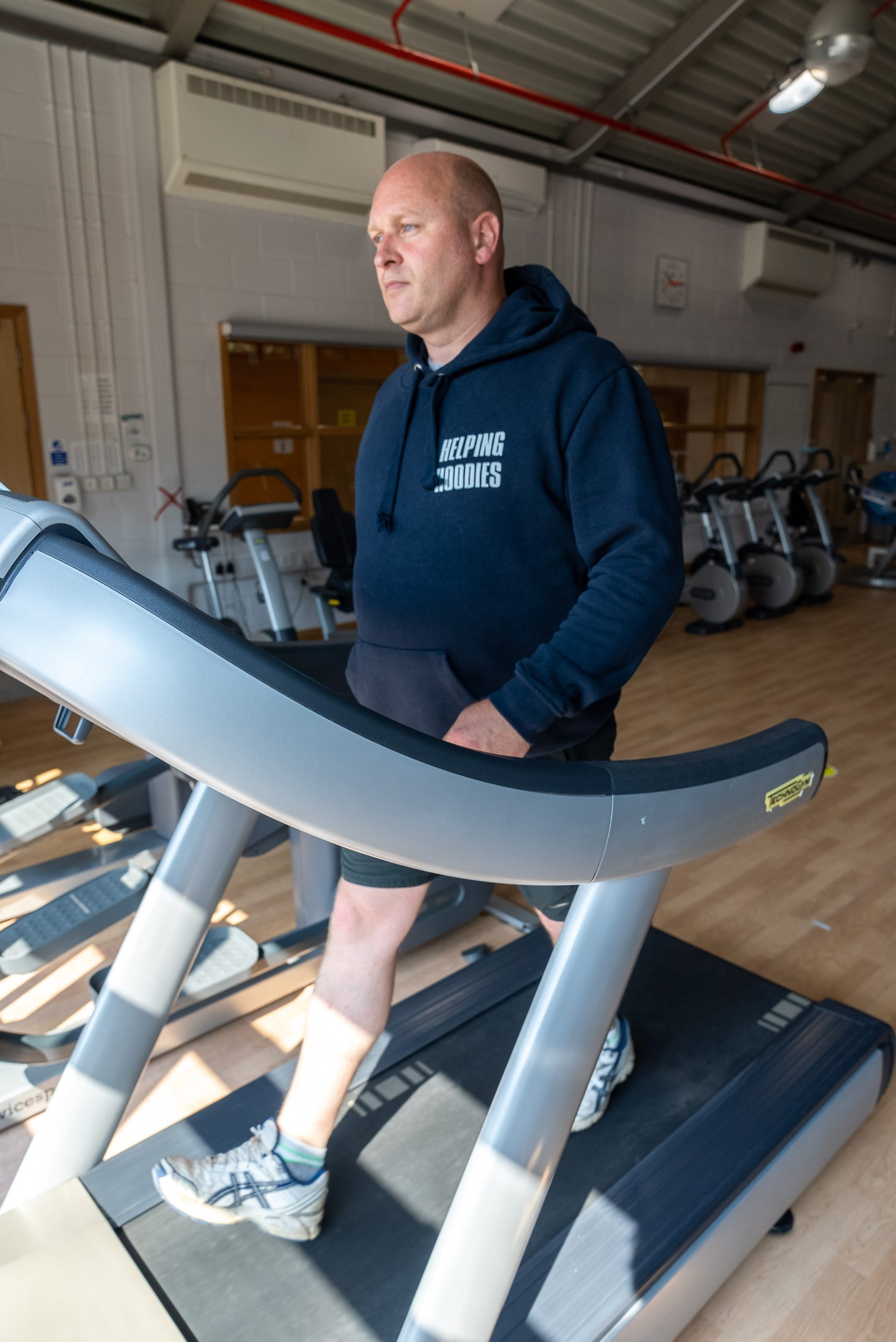
“I was on crutches when I first came to Marine Court, and by the end of the week I was off them,” he says. “I had a combination of support, as part of the main group, and also had one-to-one sessions with the physios and exercise team who gave me really specific, targeted exercises based on what I needed to strengthen my joints.
“I also had all the hydrotherapy sessions and we went out to the seafront for walks which tripled in length during the week of me being there.”
But the stay proved beneficial for more than just his physical strength, as Phil says he also received mental health support too – having, unknowingly at times, struggled on and off following his brother’s death.
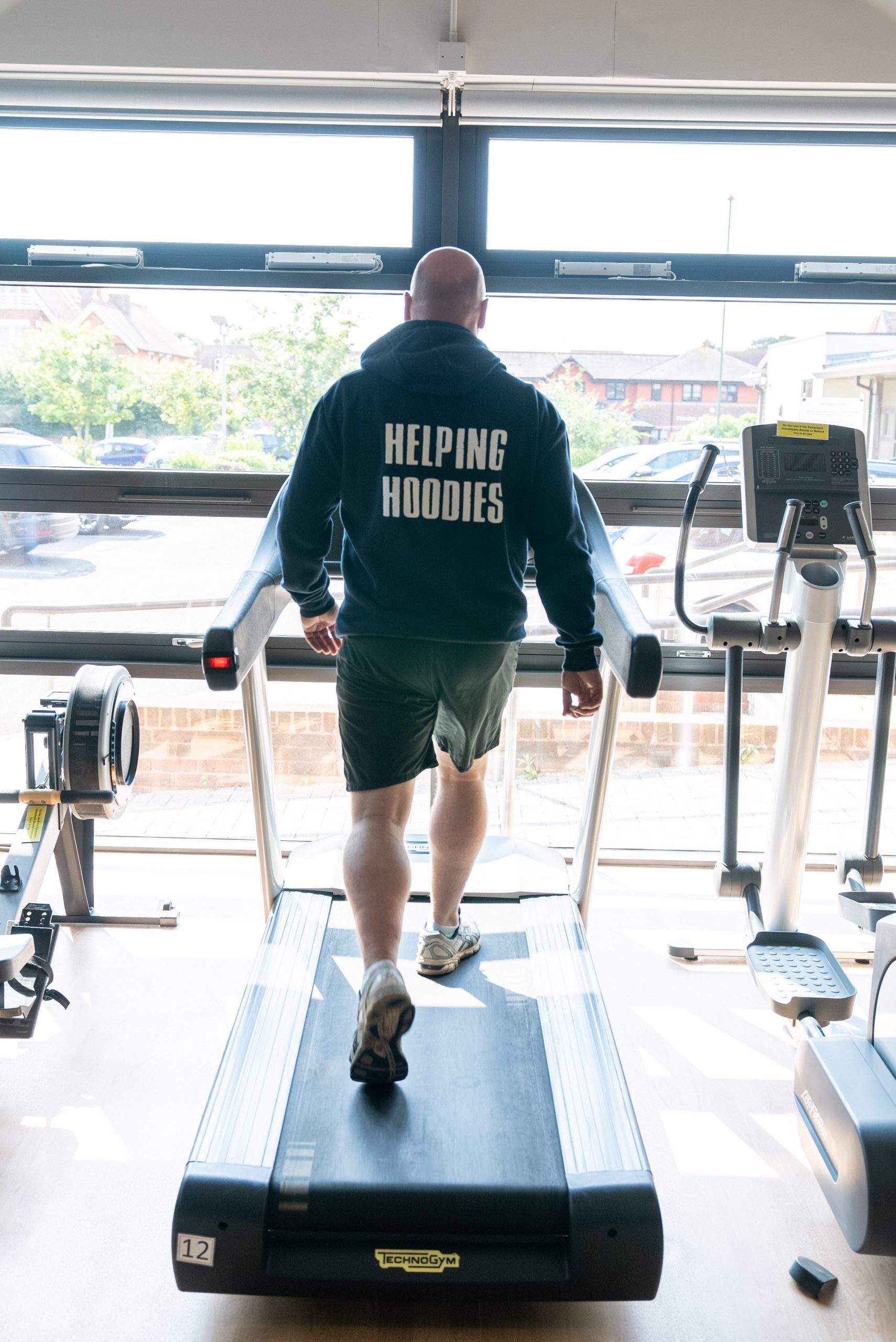
“It’s a reassurance knowing I could reach out for further support, should I need it,” says Phil. “Then I went again a couple of months later for work on my hip and it improved again.”
Since then, Phil has continued visiting Marine Court as an outpatient on our new Outpatients Programme, which was introduced following the pandemic. The programme is designed to meet the needs of certain beneficiaries in the immediate area who may have a busy schedule and can be helped through shorter, two-hour sessions, rather than a week-long residential stay.
“I already knew first-hand the great work the charity does at the centres and the benefits of it, so with my current working lifestyle, Outpatients fits in much better for me because I live quite close to the centre so I can come down once a week or so and supplement my current physio,” says Phil.
“The first time I came I was greeted at reception and the exercise and physiotherapists came and took me through to the consultation room. They talked through what had happened with me, what I was struggling with now, and they ran me through a range of movement tests and looked at where my muscle weaknesses were – so they could target those.
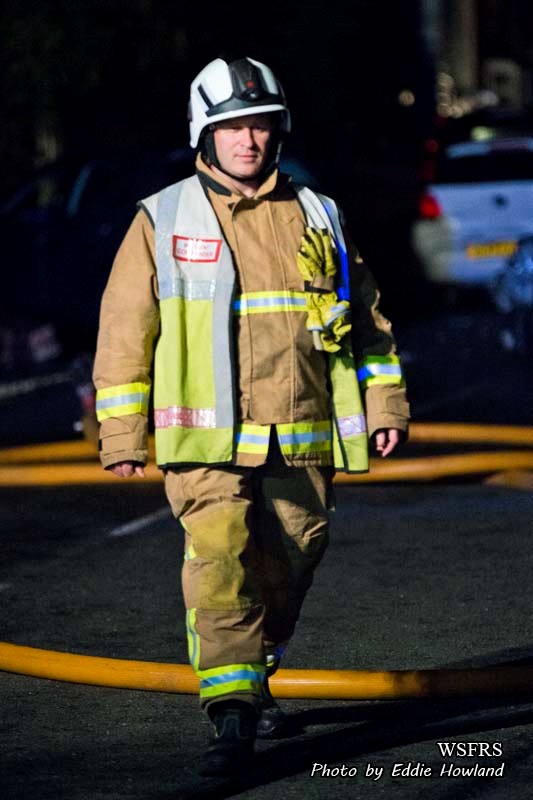
“Now I’m building muscle strength up constantly through the programme the physios at Marine Court are giving me, including the app [Salaso] which has regular guidance, and I’m in the gym three or four times a week. It’s also important to rest as well, which they ensure you understand.”
Keen to show his appreciation for the support he’s received over the years, Phil became one of our Service Coordinators last year and now helps to organise fundraising events in his area.
“I felt it was a good way to pay back for all the benefits I’ve received,” he says. “I feel that I’ve benefitted a lot from the charity and this was a good opportunity for me to give back.”
However, going a major step further, he also set up his own business – completely dedicated to the charity – called Helping Hoodies. It has been one of our valued corporate partners ever since.
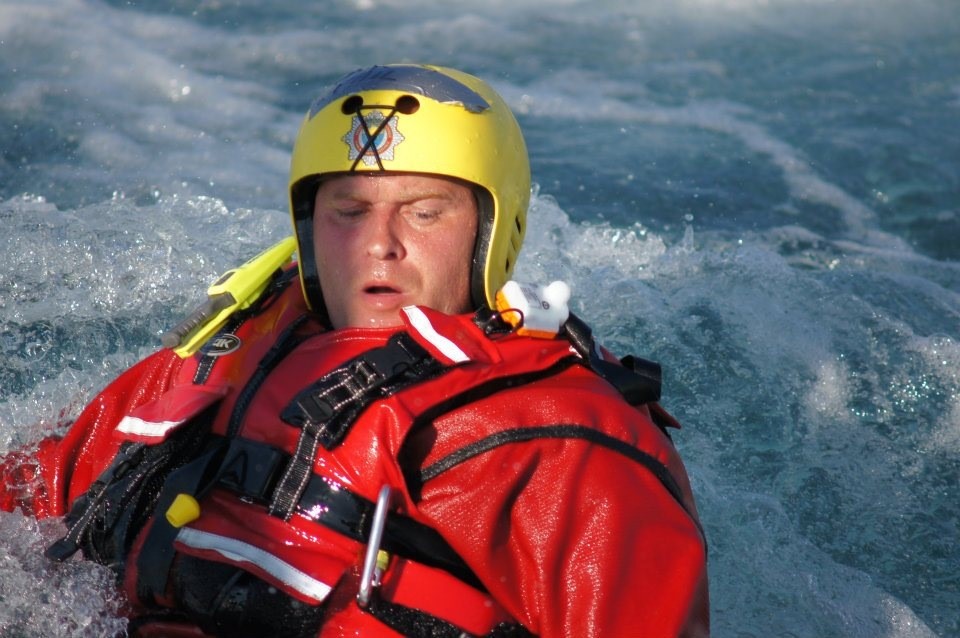
“About 15 or 20 years ago in West Sussex we used to sell hoodies to our staff with the badge on, and we gave the proceeds to Charity,” says Phil. “That fizzled out and I wanted to reinvigorate it and bring pride back into our service.
“I think it’s important that we have a sense of belonging, it’s a natural human trait, we’re tribal creatures, and I think that a badge signifies that in our services.
“I thought I’d sell roughly 20 hoodies to West Sussex and that would be it, job done, but I realised quite quickly that 20 hoodies wouldn’t give much of a donation to the charity so I asked other services and people I knew if they’d come onboard. It’s snowballed from then.”
Find out more about Helping Hoodies here.
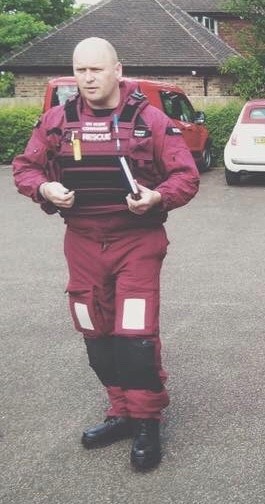
Looking to the future now, Phil says knowing the charity is there for him for life is a huge reassurance, particularly as he believes there’s a strong likelihood other joints – particularly his other hip – could be impacted by his condition.
“It’s essential to speak to professionals like those at Marine Court to try and prevent any compensatory issues,” says Phil. “As an example, I wear orthotics now in my trainers as one of my legs is slightly longer than the other following my surgery. They have a slippery surface and we’ve managed to establish that that was causing pain in my lower leg when I’m doing the treadmill test, because my toes are clawing trying to keep stable in the shoes. Just by changing the insoles, I’m able to do that test relatively pain free now.
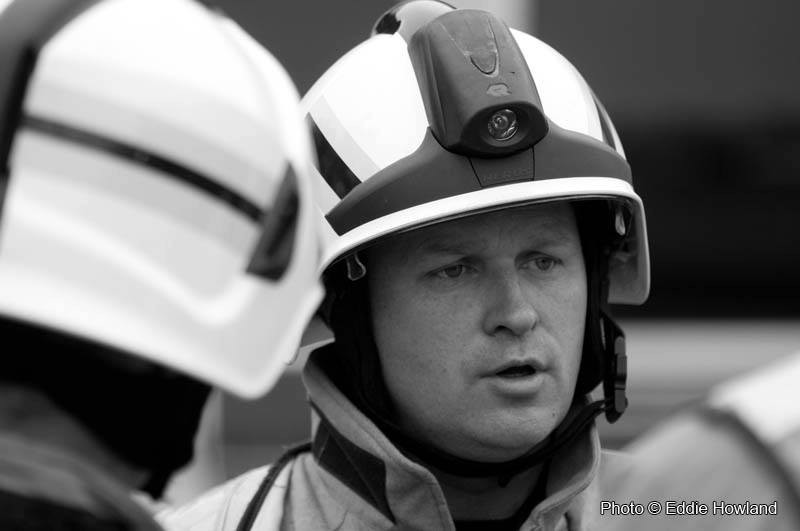
“To have experienced the charity’s support is the only way you truly appreciate what’s on offer. To think you have that for life, to me, is incredible. I don’t know any other Charity that provides that service, for life.
“When you come down to a centre and meet people from other services, whether working or retired, and see the impact and effect it’s having on them – even if it’s just being part of that group again of likeminded people, away from whatever is causing them stress in their day-to-day life or having their pain addressed or being looked after – is just such a fundamental, wonderful thing. It’s something we should be, and I am, grateful for.”
If something is affecting your physical health, mental health or social wellbeing, let us help. Our team of specialists continue to provide remote support to beneficiaries, so call our Support Line on 0800 389 8820 or make an enquiry online. Alternatively, you can access support faster than ever on My Fire Fighters Charity by visiting the ‘Access Support’ tab once registered.

